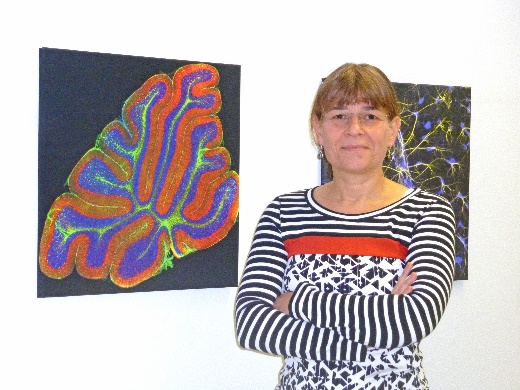The brain is the organ with the highest energy consumption per kilogram of body weight. Its function is strictly dependent on a constant supply of oxygen and nutrients. If blood flow to the brain is interrupted for even just a few minutes, this leads to irreversible neuronal damage. The best-known example is a stroke, where a blockage in a brain artery triggers a massive energy shortage of parts of the brain, causing nerve cells to die off and leading to neurological impairments that can sometimes be severe and may lead to disability and even death. In the context of how such brain damage progresses, the phenomenon of “delayed cell death”, which occurs after hours or even days, has already been extensively investigated.
In comparison, little is known about the early processes triggered in brain cells by an interruption of the energy supply. This is the starting point for Research Unit FOR 2795 “Synapses under stress: Early events induced by metabolic failure at glutamatergic synapses” funded by the German Research Foundation and led by Professor Christine Rose from HHU’s Institute of Neurobiology. Within this programme, researchers from institutes at five universities together with Jülich Research Centre and the German Centre for Neurodegenerative Diseases in Bonn are examining various aspects of insufficient energy supply to the brain with high spatial and temporal resolution. Research on this topic is fostered and driven by newly developed modern molecular tools and recently introduced high and ultra high-resolution imaging techniques.
The researchers will look at early cellular responses following interruption of energy supply at the synapses. An important aspect in this context is the contribution of glia cells (astrocytes) to the synaptic function, which opens up a new perspective on the mechanisms of later cell death. The role of glia cells has largely been neglected in earlier research.
Altogether, the experimental data generated by means of molecular biological, biochemical, electrophysiological, imaging and optogenetic techniques will be incorporated in a mathematical model. This should make it possible to simulate the processes taking place at the synapses “in silico”, i.e. on the computer.
The Research Unit FOR 2795 strives to understand the molecular and cellular processes taking place at synapses which depend directly on the cell’s energy status. The researchers also want to identify the mechanisms responsible for acute disruption to the synaptic function as well as for cell damage following a breakdown in energy supply. Such comprehensive approach and understanding are necessary in order to develop better therapeutic strategies for the treatment of stroke-induced brain damage.
Research Unit FOR 2795
The Research Unit will start its work at the beginning of 2019. It will receive about € 2.2 million over three years from the German Research Foundation, of which around € 770,000 have been allocated to HHU.
HHU is hosting four of the ten sub-projects, partly in cooperation with Jülich Research Centre. Further sub-projects are underway at the universities of Bochum, Bonn, Münster and Twente (Netherlands) as well as at the German Centre for Neurodegenerative Diseases in Bonn. What all sub-projects have in common is a joint strategy for the induction of metabolic stress. However, they are each looking at cell systems with different levels of complexity – from cell cultures to tissue samples to living (“in vivo”) systems and computer-based modelling.
Spokesperson is Professor Christine Rose. Deputy spokesperson is Professor Christoph Fahlke, who teaches cell biophysics at HHU. He is also Director of the Institute of Cellular Biophysics at Jülich Research Centre.





